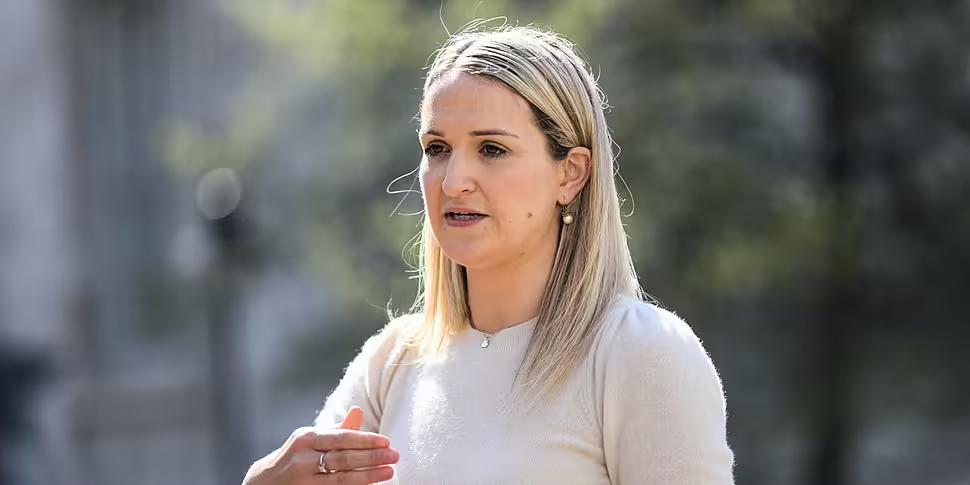Justice Minister Helen McEntee says changes to the law will make things very clear 'in black and white' around consent.
Under the proposal, anyone accused of rape would have to show what steps they took to ensure they have consent for sexual activity.
It means a defendant's claim that they believed they had consent would no longer be enough.
Minister McEntee told The Hard Shoulder she wants to strengthen and clarify consent, and how it's used in trials.
"At the moment there is an honest belief test - so a subjective test - which means a person who is accused of rape... that they can say they honestly believed that the person was consenting.
"They don't have to go any further and show that they took any necessary steps.
"What I'm proposing... is that we introduce what is called an objective test.
"So this means if a person has been accused, if they put forward a defence, they must show that they took reasonable steps that would make a reasonable person believe that the other person was consenting".
She says this could include a conversation around consent, and that they knew the other person was in a position to consent.
"There are a number of different steps that a person would have to now take and show that they went and took the measures to make sure that that person was consenting.
"I think it's really important that we move away from this idea that a person can simply say 'I honestly believed that the person was consenting'.
"But to a reasonable person, this person couldn't talk, was maybe not able to walk, might have had something happen to them - or they very clearly did not consent".
'An important change'
Minister McEntee says more legislative changes are also coming.
"There should never, ever be a situation where someone is in doubt as to whether or not the other person is consenting.
"I think this is an important change, it's not a change that we're going to make on its own.
"There are a number of other amendments I've put forward today and that have been accepted.
"One is that we will make absolutely clear, in law, that being drunk is never a defence for rape.
"It's not really something that's used, but it's not something that's clearly defined in our law.
"A person who is accused can never say 'I was drunk, I didn't understand, I didn't know the other person didn't consent because I was drunk'.
"So we're making that very clear, black and white".









